The Biden administration is moving forward with a new round of tariff hikes on a variety of Chinese-made goods, including all-electric vehicles and related components, with the first tariffs expected to go into effect later this month. The Biden administration announced the new tariffs in May, outlining a 100-percent tariff on Chinese-manufactured EVs. The tariffs are intended to counteract competitive pressures from Chinese industrial policies that are perceived as unfair, all while encouraging the development of a robust domestic U.S. EV production supply chain.
The new 100-percent tariff on EVs produced in China is a dramatic increase from the 25-percent tariff in place prior. The new tariffs will go into effect as Vice President Kamala Harris heads into a tight election race with former President Donald Trump this November.
“The 100 percent tariff on electric vehicles here does reflect the very significant unfair cost advantage that Chinese electric vehicles in particular are using to dominate car markets at a breathtaking pace in other parts of the world,” said White House economic advisor Lael Brainard, per a recent report from Reuters. “That’s not going to take place here under the vice president’s and president’s leadership.”
Canada and the European Union have followed the Biden administration’s lead, with Canada recently announcing its own 100-percent on EVs produced in China. Meanwhile, former President Trump has touted a 60 percent tariff on all Chinese imports.
China has characterized the new tariffs as “bullying,” stating that its success in the EV industry is down to innovation, rather than government backing.
The upcoming tariff increase will apply to several other goods produced in China, including a 25-percent tariff on steel, aluminum, EV batteries, and the raw materials required for EV battery production, as well as a 50-percent tariff on solar cells and semiconductors. The new tariffs are expected to go into effect on September 27th, while new tariffs affecting Chinese-sourced materials for batteries used in other devices, such as cell phones and laptops, are expected to go into effect on January 1st, 2026.
Following the announcement of the new tariff hikes this past May, GM President Mark Reuss expressed support, stating, “We just want a level playing field.”

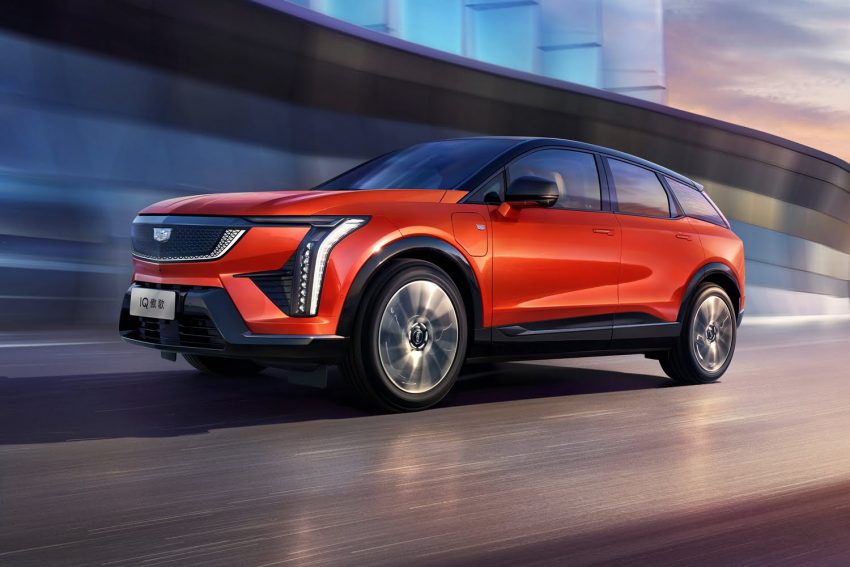

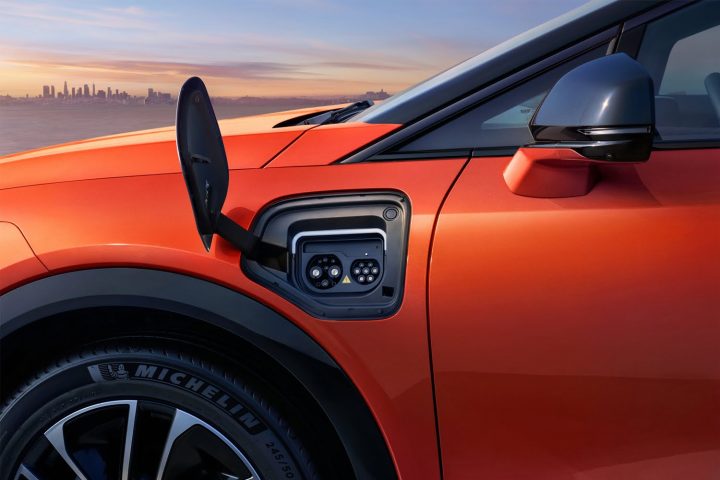


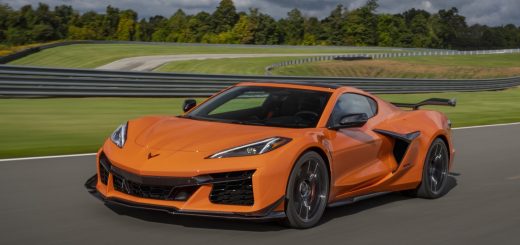
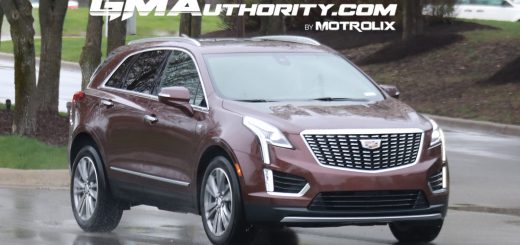

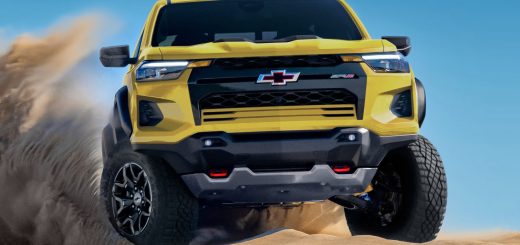






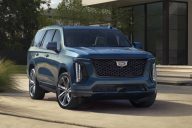
Comments
One of the few things I agree with him doing.
According to Tuesday night isn’t that a 100% sales tax on Americans. Or is sales tax just the divisive word used when the tariffs are not your own
People can say whatever about it. The fact of the matter is, not only “the west” are hitting them with tariffs. Turkey, Brazil, India, and Indonesia (Indonesia is not on EVs but they passed a 200% tariff on textiles from China) means that this isn’t about geopolitics. Clearly not only the west is recognizing a bad actor that doesn’t seem interested in playing nice.
@85 – I call BS for Bull on all that.
It IS about geopolitics and the US having lost its competitive edge and there’s not a thing we can do about it.
Brazil has not imposed tariffs on Chinese EVs. They might to protect their own semi fledgling domestic auto industry, composed of zero local brands. I haven’t seen anything about Turkey doing the same. India has an obvious interest in protecting its domestic auto industry, so that would make sense.
The more important part of your comment is about China being a “bad actor”. Making a good product at a low price all of a sudden makes a bad actor? So much for capitalism and the free market economy.
You may want to do a little research. I’d add the links here but the channel will block the comment and no one will get around to approve it so best you look it up for yourself. Turkey imposed a 40% tariff on cars imported from China back in June. And Brazil, Lula repealed a free trade agreement that is reimposing a 25% tariff on cars imported from China. India, well, they are killing Indian soldiers on their border that has been there for decades so very good reasons to not want to allow their cars in period. And to your point, its all about protecting their local auto manufacturing. So you’re not telling me anything new here. Turkey and Brazil are major auto manufacturing hubs and so is Canada. Dumping in their home countries affects those jobs just like textiles in Indonesia. Competitive products my but. Their cars are just as good as the Japanese or Koreans but can use their planned economy to overproduce to put others out of business.
As for free market capitalism, it only works when every single player plays fair. Start overproducing capacity to dump your excess products in other countries economies and the term “free market” goes out the window. So you can keep your head buried in Xinghuas or CGTNs sand all you want. The fact of the matter is, its not only the west that is calling out their BS.
Not a huge fan of the tariffs, but I understand it’s one of the few political tools a president can use without trying to deal, with a hostile legislative branch.
I think better would be to implement similar policies as China did to ramp up their automotive economy and industry. Basically require any and all foreign automakers that want to sell cars in the US be required to build factories here in a JV with a U.S. domestic automaker.
And heavily subsidize the entire EV supply chain, and fast track permitting for ev raw materials mining and processing.
But that’s politically hard to do, vs just slapping a tariff on and hoping the domestic market fixes itself.
They need to impose a 100 percent tariff on ALL Chinese cars.
Add Japanese and South Korean cars to the tariff candidates.
The problem with that is all manufacturers including GM sell vehicles sourced globally. Mexico,Brazil ,Canada , South Korea and yes China.
Some Japanese cars are made in the USA!!!!!
“They need to impose a 100 percent tariff on ALL Chinese cars.”
… and China’s pricing will still undercut anything made in the US.
You’ll need either a 200%+ tariff or a straight-up embargo. And even then China knows they just need to wait until the next administration. (Yes China might publicly throw a hissy fit, but they think and plan in terms of decades, while the US doesn’t think past the next election.)
GM does build Buicks in mainland China with components that Us cars use here.
Right before an election. Totally political.
I am canadian and canada has put 100% tariff on chinese imported EVs as well except in canada ,Tesla imported alot of cars from China to canada, so China and stopped importing canola oil from Canada, it is hurting Canada more than USA. We need musk to stop importing cars from China as well as Gm for importing all buick Envisions and Ford with lincolin nautilus
I was going to point this out as I remember hearing about the Canadian tariff not long ago on a business news channel. Made me think the USA should be doing it too.
It’s not a tariff or a “tax” on consumers …. if no one buys the vehicle.
Which is the REAL goal.
Try to keep up, people .
Funny ! …. they copied the cheesy Kenworth marker lights .
Same desired results to help protect the automotive industry…
Trump tariffs made the left scream and stomp their feet.
Biden’s tariffs: he’s a good man, and heck, we need tariffs to counter the evil Chinese…
The double standard is outright embarrassing.
I thought EVs were to save the planet? Shouldn’t we be trying to sell them at any cost? We are all going to die from climate change 🤪